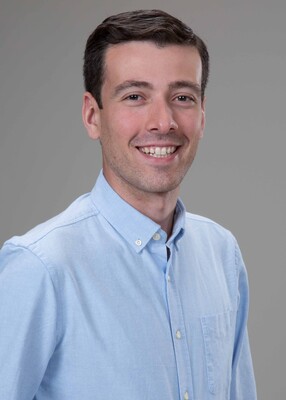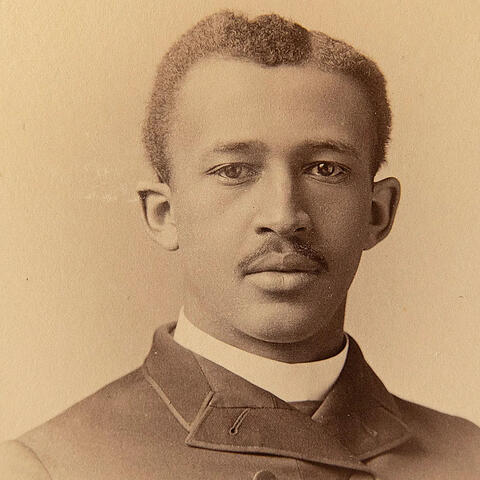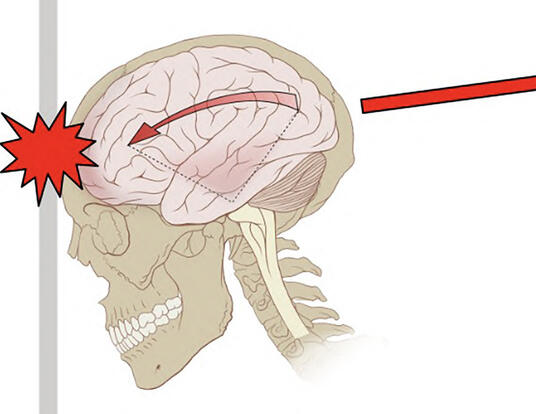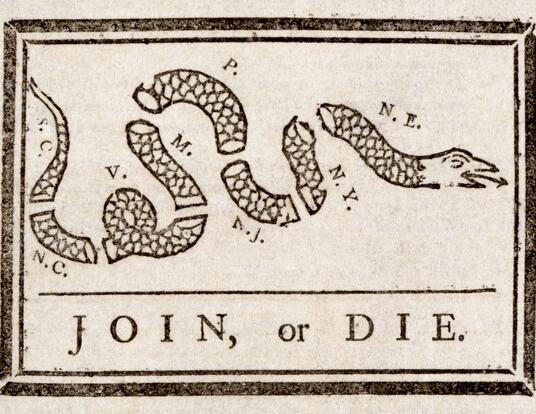Pothole Politics

Potholes are an everyday annoyance for commuters, but they're a really complex problem for cities to solve. Many cities, including Boston, have 311 apps that allow citizens to report potholes in their own neighborhoods. But Elijah de la Campa is curious to know whether those apps are actually improving citizen participation in local government.
Learn more about the Government Performance Lab's Boston Asphalt Resurfacing project.
Interview Highlights

"Potholes not only tell you about the state of your infrastructure, they also tell you about the nature of participation in your city. That, to me, is really fascinating. They're this hyper-local problem that's really pervasive that the city just couldn't catalog - any city really just couldn't catalog - on their own. They actually need citizens to feed them information about where these potholes are in order to actually remedy that situation."
"I'm fascinated by city governments and local governments because it's the level of government that we interact with on an everyday basis. It's the level of government that we interact with most in our lives. You know, I walked to this interview. I took the sidewalk that my local government maintains. Maybe you took the bus here, and that's the road that the government maintains. Maybe you have children and you send them to a public school. The police and firemen that respond to your emergency. It's local government that really is doing so much for us. My take is that we lose sight of that sometimes."
Credits:
Host/Producer: Anna Fisher-Pinkert.
Sound Designer: Ian Coss.
Logo by Emily Crowell.
Executive Producer: Ann Hall.
Special thanks: Graham Ball, Elijah De La Campa, the Government Performance Lab at the Harvard Kennedy School, and the What Works Cities Initiative funded by Bloomberg Philanthropies.
Full Transcript
Anna Fisher-Pinkert: From the Harvard Graduate School of Arts and Sciences, you’re listening to Veritalk: Your window into the minds of PhDs at Harvard University. I’m Anna Fisher-Pinkert. Last week, we were in Manila talking about the night shift, and this week we're coming a little closer to home in our series on the secret life of cities. If you live in a city, really, any city - but particularly cities with harsh winters, you know this sound.
[Ker-thump sound]
AFP: It’s the sound of your car going over a pothole. And potholes cause all sorts of problems - from inconvenient - like spilled coffee, to downright dangerous - like flat tires, or cyclists getting thrown off their bikes. Potholes are a major problem for cities. The city of Boston spends roughly $6 million every year repaving 30-40 miles of the city's roughly 800 miles of streets. PhD student Elijah de la Campa actually worked with the city of Boston through a fellowship at the Government Performance Lab at Harvard.
Elijah de la Campa: So one project that I worked on, which is through the What Works Cities Initiative funded by Bloomberg Philanthropies, was to help Boston's Public Works Department restructure their road maintenance contracts - the road resurfacing contracts - in such a way that service delivery would be more predictable, more efficient, and more tailored to the needs of citizens.
AFP: Your research. . . .Like, you said a bunch of like fancy words but. . . you're researching potholes!
EdlC: That's one of the things we're researching. So, potholes, I think, are really interesting.
AFP: You can’t see Elijah’s face right now but he is absolutely, 100%, sincere about what he’s saying. He is really into potholes. He can’t even walk down a city street without thinking about them.
EdlC: Particularly on streets and sidewalks I'm just like, "Oh, this person didn't do a great job of putting this thermoplastic reflective line in the middle of the road. I know that in Boston they do a better job of that." I mean, it's just inevitable that I see these things all the time now. Potholes not only tell you about the state of your infrastructure, they also tell you about the nature of participation in your city. That, to me, is really fascinating. They're this hyper-local problem that's really pervasive that the city just couldn't catalog - any city really just couldn't catalog - on their own. They actually need citizens to feed them information about where these potholes are in order to actually remedy that situation. So, as a citizen, it's easier than ever for you to just take out your phone - if you live in Boston for example - you would snap a picture of that pothole go on to the 311 app and, boom, send it off to the public works department, right?
AFP: Elijah is right about this - I have this little 311 app on my phone, and I can use it report that nasty pothole from earlier. While working with the city of Boston on improving their road repair projects, Elijah got really interested in apps like this one.
EdlC: The project in Boston was really fascinating to me because it showed me that there are things, pretty routine things, that the government can do for its citizens - like repave a road fix a pothole - that have this pretty profound impact on citizens' lives. And you know, in many ways, this unforeseen impact on citizens' lives. And at the same time that I was working with the city, there were other folks in City Hall doing really interesting work. And in particular, there was a team that was sort of exploring the city's response to requests for sidewalk repairs. What they were finding is that requests for sidewalk repairs were concentrated in really wealthy neighborhoods, and those wealthy neighborhoods actually tended to have higher quality streets on average. And, the growth of repairs in those neighborhoods was also higher. So one way to interpret what they found was a sort of "feedback loop" between government responsiveness and future citizen requests.
AFP: It turns out that regardless of which neighborhoods need more repairs, there are groups of people who are more likely to complain than others.
EdlC: You know, frankly, there is research out there that shows that, there are, specifically in New York City, in Boston, that there are differences in the types of people that complain about things. Right? People that complain about things tend to be whiter, they tend to be richer, they tend to be older.
AFP: So if I am someone who lives in - what is a wealthy area that gets all these repairs pretty frequently?
EdlC: Let's say Back Bay in Boston.
AFP: I was gonna say Back Bay. So I live in Back Bay. I walk out of my brownstone and I see a pothole or a hole in the sidewalk and I'm gonna, first thing take out that 311 app.
EdlC: Mm-hm.
AFP: And then when I come out next week and see that it's repaired. I'm like, “great!” I'm going to use that 311 app the next time I see something that’s gone wrong.
EdlC: Yep. That is certainly one way to interpret what's going on.
AFP: There’s other evidence for this “feedback loop” idea. A Harvard economics PhD student named Laura Trucco conducted a study in Buenos Aires. The city did an experiment: they dug into a backlog of requests to fix broken sidewalks, and picked, at random, which ones to repair.
EdlC: And what she found is that requests tended to increase in neighborhoods that got these random sidewalk repairs. One thing that could happen is that you now think that, “oh the government actually listens to me, so it's worth my time to actually complain about this issue because I see very clearly that they respond to me when I ask them to do something.” So if that is, in fact, the calculus that's going on in people's heads, then you could get this scenario where the rich people complain about something, it gets fixed for them. The rich people keep complaining and the resources are pooled into those types of neighborhoods.
AFP: So you might conclude: Ok, we can’t trust citizen requests, because this feedback loop means that we’ll keep getting requests from wealthy, whiter neighborhoods. So, why don’t we do this the old fashioned way and let the city pick which roads to repair? Well, there are problems with that, too. Elijah is doing research in an unnamed city (seriously, he wouldn’t tell me which one) and this city manages road repairs purely based on which streets have the most need.
EdlC: And what I find in my research, and it's pretty early stage, but what I find in this research is that the intensity of street maintenance in your community is actually negatively correlated with the amount that you engage with your government moving forward.
AFP: So the more times that a crew works on my street, the less likely I am to pick up that 311 app. And you might be thinking, “duh, Anna, they just fixed your street, what do you have to complain about?” But it turns out that the people on these frequently repaired streets tend to complain less about . . . everything.
EdlC: This negative correlation is strongest for just sort of core bread and butter government goods: things like sidewalk repairs, street light repairs, tree repairs, and for code violations which are related to buildings and permits. And what’s really interesting also is that this effect is concentrated in neighborhoods that in the past tend to receive that in the past tended to have lower rates of responsiveness from the government. Neighborhoods that had to wait longer for governments to respond to their past requests. There is an even stronger negative impacts of the street maintenance on feature requests in these communities.
AFP: So non-participation also has a feedback loop - the more your city government does without your input, the less likely you are to try to give that input.
EdlC: It could be that the government fixing your road in an unsolicited way has increased your belief in just their latent capacity. Right? You think that, “hey my government is actually pretty effective. My road was broken and they just did it by themselves. I don't need to complain because they're just going to fix it for me.” Or it could be that, “Whoa. This was super disruptive to my everyday life. They're fixing the street outside my house. It took them ten days. I couldn't park. And I don't want to dip back into that well. I know what it’s like when the government comes to my neighborhood, it takes a really long time.”
AFP: It strikes me that all of these apps are designed to make the playing field more level, right?
EdlC: Yeah, and they . . . they do in certain important ways. They are a super low-cost participation tool. That is absolutely great. And if we think about potholes, again, you know, the city cannot possibly catalog all this information by themselves. So it certainly makes sense for a city to leverage the crowd, to leverage information from its citizens to try and serve them better. But it's really this age-old question of the digital divide, right? Not everyone has access to computers to the internet or to smartphones to be able to participate. And even if they do have that access, they might just not be inclined to actually engage in the way that we want them to. So, while technology does, in fact, make it easier for people to engage with their government, it doesn't necessarily remedy some of those underlying issues that cause people to behave differently for reasons that we don't fully comprehend.
AFP: So do we know what's driving down participation in lower-income communities and communities of color?
EdlC: I think that we don't entirely. That's really one of the key open questions in the field. You know it could be that there are things that are correlated with race and income that are also correlated to your tendency to request things from your government. Say, your tendency to own a smartphone. Going back to the digital divide that we talked about. But it could be that there are just underlying differences in the rate at which these communities have trust and put their trust and beliefs in their government. Certainly this seems like a plausible story given what's gone on in this country over the past, you know, three or four years with police police violence that sort of thing occurring. It's not a huge jump to think that certain types of communities would have less faith in their government.
AFP: My question is: Is there an alternative to these apps to get people to participate in these citizen-driven projects?
EdlC: Yeah, I mean, that's the sort of million dollar question that is. . . I guess, the elephant in the room that has just not been solved. I mean, personally, I think the answer is probably some mix of these citizen driven models and the sort of bureaucrat-driven model. Right? So, the idea that there is a bureaucrat working in city hall who has access to information that maybe citizens don't have, and knows how to make informed decisions. They’re an engineer, they’re trained in this of thing. And they could really more explicitly take into account some of these differences that we're talking about, right? They could say, you know, "I have this preference for focusing on low-income communities because I know that these are the types of communities that are not going to actually be vocal in telling me what's wrong." So I have this information that shows that, let's say, people in low-income communities are more likely to ride the bus. So when I think about my street maintenance programs, I want to focus on bus routes in low-income communities because getting to work is super important, obviously, and we want to make sure that these people who might not voice their concerns are actually being addressed equitably in our city.
AFP: Aren't there some downsides to bureaucrat driven decision making? I mean, aren't some bureaucrats not motivated by all of these good things that you’re talking about? Either they are in positions where they need to get elected, or are appointed by an elected official? Not everyone has the same motivations coming into office.
EdlC: That is absolutely true. Yeah. So that is certainly one of the risks, and it's one of the risks that's just inherent in our sort of political system, in our local government systems. There is this turnover. Thankfully, many of the bureaucrats that are hitting the pavement on a regular basis are not necessarily appointed positions. But to go back to your point, it’s a black box. Even if they're doing everything correctly, it's still kind of a black box. That, I think, is an avenue that we can stand to make some progress on: peeling back that black box a little bit, explaining to citizens more thoroughly you know, "what is road repaving? Why are we road repaving in your neighborhood? Why did your neighborhood get picked over another neighborhood?"
AFP: It seems like in order to do this work and it seems like, just from talking to you, you really do think that city governments are important and can do good.
EdlC: 100 percent. I'm fascinated by city governments and local governments because it's the level of government that we interact with on an everyday basis. It's the level of government that we interact with most in our lives. You know, I walked to this interview. I took the sidewalk that my local government maintains. Maybe you took the bus here, and that's the road that the government maintains. Maybe you have children and you send them to a public school. The police and firemen that respond to your emergency. It's local government that really is doing so much for us. And we kind of lose sight of that . . . My take is that we lose sight of that sometimes. My experience working with governments has been that there are fantastic people there that are really trying to do right for the world, right for their communities. And, you know, elevating those people, elevating their stories, understanding the dynamics of what goes on when they do something for a citizen - as I'm trying to do my research - that's something that's really important to me.
AFP: Of course, not everyone has the kind of experience getting to know their city the way that Elijah has. But - it is really nice to think that when I send that 311 request, there is a person on the other side of it. City hall isn’t a monolith (well, ok, in Boston, it’s architecturally a monolith - but that’s another story). City hall is made up of people. People who make decisions about schools, about services, and, about potholes.
[ker-thump sound]
AFP: Next time on Veritalk: we’re exploring the nightlife of Lagos and Johannesburg in the last episode of our series on the secret life of cities. And we’re going to find out how race, gender, and class have shaped how people feel about going out at night.
Chrystel Oloukoi: The security guards are trained to notice if people that don't correspond to a certain class idea start lingering in the space. And then it's not lingering anymore, but it's called loitering.
AFP: That’s next time on Veritalk.
If you’re looking for another story about cities, head on over to the This Week in Health podcast for an interview that I did with Augusta Williams, a student at Harvard’s School of Public Health - and she’s studying cities and heat. You need to hear what she has to say about air conditioning. Visit hsph.me/thisweekinhealth to listen.
If you like our show, rate and review us on your favorite podcast app - it really makes a difference.
Veritalk is produced by me, Anna Fisher-Pinkert.
Our sound designer is Ian Coss.
Our logo is by Emily Crowell.
Our executive producer is Ann Hall.
Special thanks this week to Graham Ball, Elijah De La Campa, the Government Performance Lab at the Harvard Kennedy School, and the What Works Cities Initiative funded by Bloomberg Philanthropies.
Get the Latest Updates
Join Our Newsletter
Subscribe to Colloquy Podcast
Simplecast





